Biography
Gregory Theologian - Christian Worker, one of the three universal church teachers. The saint Grigory Theologian was a pupil and the associate of St. Vasily the Great. He knows and read both in the Roman Catholic Church - the day of memory on January 2 and in the Orthodox Church - 7 and 12 February.Childhood and youth
The exact date of the birth of the saint is unknown, about 325 of our era. A boy was born not far from the city of Naziaza, located in Cappadocia (in the territory of modern Turkey). Not by chance later, he was called Grigory Nazianzine.
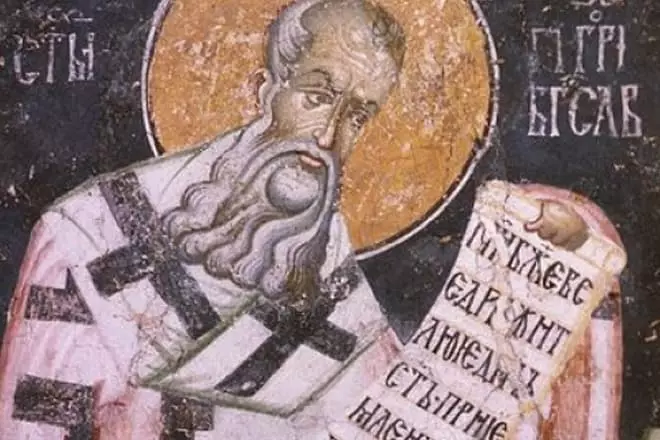
His Father Grigory was a local aristocrat, and his wife Nonna was a true Christian, all the days a woman spent in prayers, was engaged in charity. Soon and the Grigori-senior adopted Christianity. At first he became a presbyter in the local church, and after the bishop of Nazi.
Nonny had no long to become pregnant for a long time, so he prayed a lot and asked God for grace. She promised that if the Almighty would give her a child, she would devote him to God. Later in a dream, a woman saw her future son and heard his name. After the emergence of Gregory, Nonna has born two more children - the son of Caesarius and the daughter of Gorgonia. Subsequently, all members of the Gregory family were recognized as saints.
Having received the initial home education, Gregory went first to Cappadokia, and later to Palestine and Alexandria, where he studied in high schools. But the scientific center at the time was Athens. Therefore, Gregory moved to Athens, where he studied astronomy, geometry, rhetoric, poetry. He studied Aristotle and Plato's work. To a greater extent he was interested in the style of the presentation, rather than the very teaching. But on how later Gregory began to interpret religion, largely influenced these works.
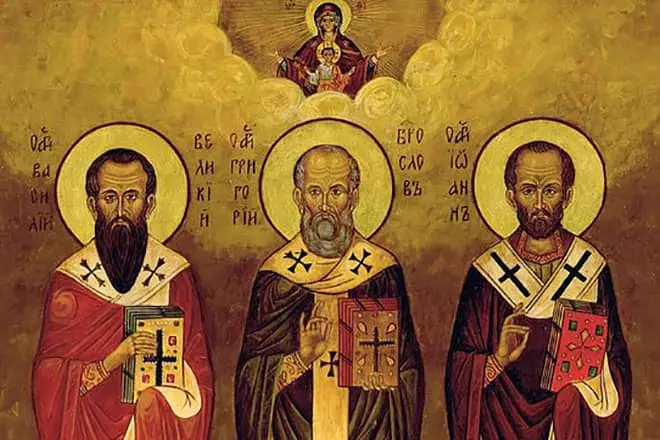
When Gregory studied in Athens, he met the Great Vasily. And this meeting was fateful for Gregory. After study, he taught eloquence in Athens for two years. And on returning to Naziaz, his father baptized him. At that time he was already 30 years old. But at that time, baptism took only after education was obtained.
Gregory monastic life fell in the soul, and he moved to the monastery, whose founder was his friend Vasily Great. Together they studied the works of the founder of biblical philology and philosopher Origen. Later, Grigory Theologian from his works recorded excerpts, which were called "Philoklia".
Christian ministry
In 361, the Father asked to return the son to his homeland, he needed help. Gregory dedicated to the presbyters. At that time, his elderly father led an active struggle against Emperor's troops Julian apostate, who tried to capture Christian temples. It is noteworthy that the future persecutor Christians Julian studied with Gregory Theologian and Vasily Great in Athens.
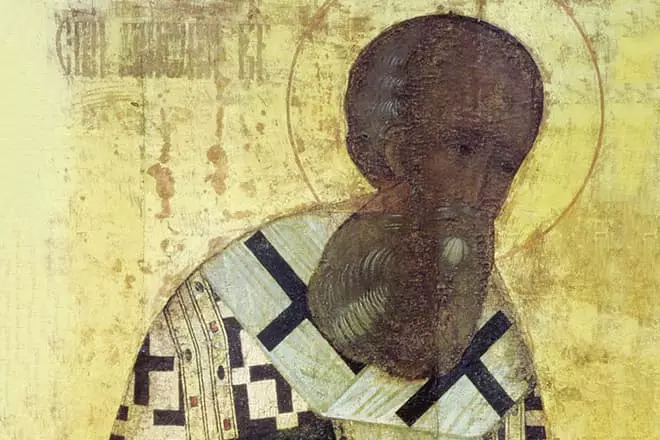
But after all, a contemplative monastic life was closer to Grigory, so he came back to the monastery soon after ordination. However, he understood how much his father needs support, and already at Easter uttered his first sermon in Nazianze.
After some time, Vasily Great, who at that time was already Archbishop, asks Grigory to take the position of Heping in Sashima. He needed loyal and reliable people in the fight against Arianism. Gregory hesitated, but his father insisted. Unfortunately, for the short time he served in Sasima, he did not read any service, did not take a single cleric. Soon he leaves the city and lives three years in the monastic desert. His departure significantly cooled their relationship with Vasily.
In 374, Father Gregory died, a mother died after him. Death She met the icon at worship. For him it was a big blow. Vasily Great came to the funeral of his father and read the tombstone, after which their friendship began to better.
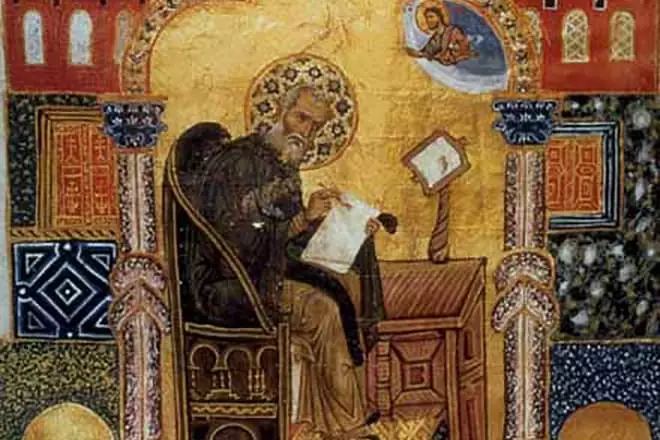
After the death of Father, Grigory Theologian led the diocese, but he believed that he had no right to occupy the throne of his father. Therefore, he leaving to the city of Seleucia, thinking that in his absence, the inhabitants of the city will choose a new bishop. But the people of Nazianza demanded his return, and he continued to manage the local church.
The second blow to Gregory became the news of the death of Vasily the Great. By this time, he was already famous as an ardent defender of faith and a talented preacher. At the same time, the new Emperor Feodosius closed the throne, and he, unlike the predecessor, is a supporter of Nickeans. Feodosius invites Gregory to himself and suggests heading the diocese in Constantinople. It was then, he began to call him the theologian, he was a truly brilliant speaker, his sermons did not leave anyone indifferent.
But Constantinople was 40 years old in the hands of Arian, and overnight they could not disappear anywhere. Therefore, having arrived in the city, Grigory immediately becomes the object of persecution among Arian. Once, they broke into the cathedral when the saint performed the rite of baptism, someone demanded his expulsion, and someone began to throw stones at him. The man was dragged to the city authorities, who eventually did not support Arian and left it in the city.
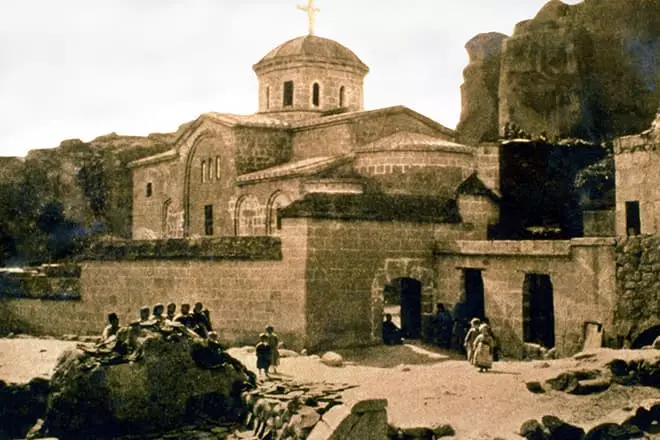
And after a couple of months, Konstantinopol visited the emperor himself. He personally introduced Gregory to the Sofia Temple and "Pass" him. For the approval of the Saint at the Department and solving issues related to the rates, the Second Ecumenical Cathedral was collected.
When discussing Arianism, Grigory recorded the dogma of the Trochbiness, which is now taking a primary place in theology of Christian churches and is the central thought of Christian verbation. God is one, one essentially, but three in the faces - Father, Son, Holy Spirit. According to Grigory theologians himself:
"We worship the Father, and the Son, and the Holy Spirit, sharing the personal properties and connecting the deity."During the Universal Cathedral, his chairman of the Miletia, and Grigory took his place. Later began to choose the head of the Antioch Department, which was headed by the Miletia. The opinions of the participants were divided. Some wanted to see the representative of the "West" on this post, others - "East".
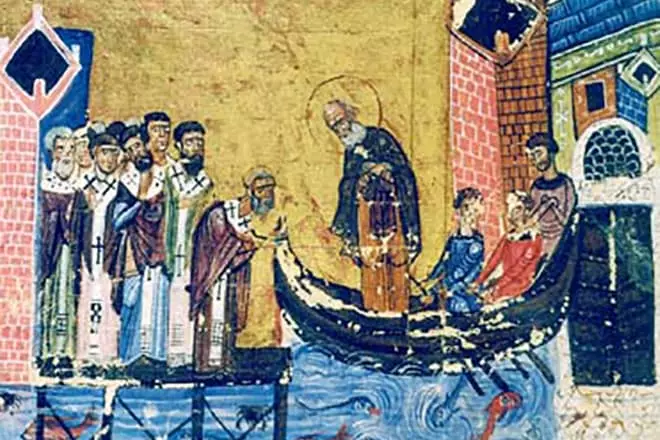
As a result, the conflict arose in which Grigory was touched upon, accusing him in violation of the rules of the First Universal Cathedral. It was that he did not have the right to become the Constantinople Archbishop, being a bishop Sasimsky. Plus, he left the department in Sasim, which also contradicted the established rules.
Thus, the saint left the Konstantinople department. It was not at all grieving at all, he had long been tired of the struggle for power, which he was absolutely needed. By nature, he was a subtle and self-talking person. In fact, he was not intended for a church dignitary, and he became only for the instruction of the friend of Vasily the Great.
Returning to Naziaz, he again stood at the head of the diocese of the city, could not refuse to citizens. But it was not easy for him. In 383, his health worsened, and he was freed from the leadership of the department. Feodor, Bishop Tyransky, put on his place Hepsopa Elaudia, relatives Grigory Theologian.
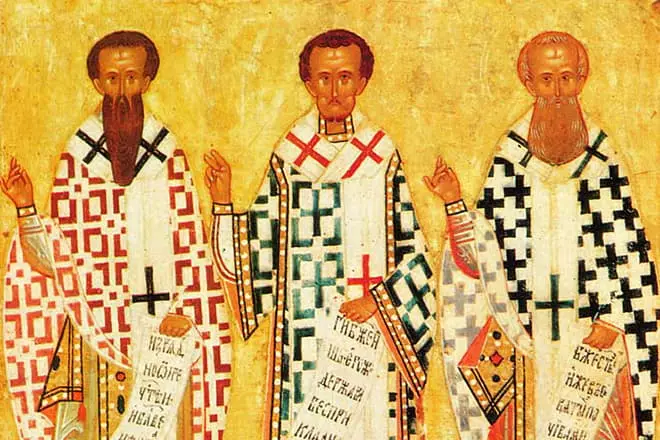
Looking at peace, he dedicated himself to writing. Gregory is the author of over four hundred poems, he wrote epigrams, poems, hymns. At the same time, he continued to attend the monastery, traveled a lot. The main literary heritage is still considered "words" - 45 conversations covering the 20-year period of his life.
Also preserved 245 letters Grigory Theologian, many of whom were addressed to his companion - Vasily Great. He recalls their collaborative life in the monastery, and in later letters accuses him to involve himself in the fight against the Arianism and the construction of his bishop of the city of Sasima.
Gregory Theologian left a big mark in Christianity, his writings influenced the next theologians. The work of the saint was interpreted along with the Scripture. The Orthodox Church introduced Gregory into the number of fathers of the church, which means that his personality has a special weight in the formation of dogmatic and worship.
Death
Gregory theologian died on January 25, 389 in Naziase, there he buried him. After herself he left the testament. It was probably written back in 381. The saint's family estate left dioceses, savings and clothes bequeathed to friends, and also ordered the dissolution of his slaves.
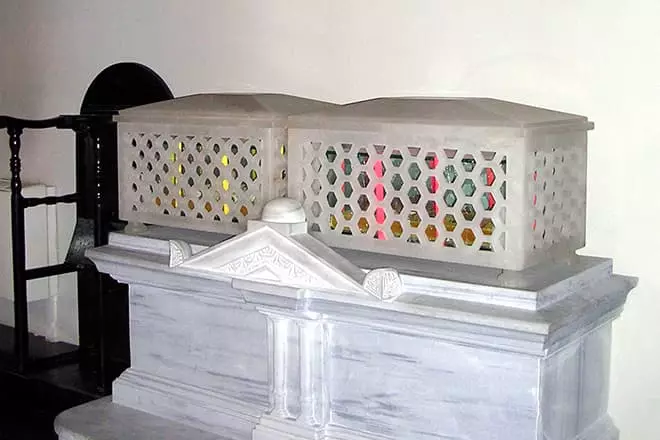
After half a century, Emperor Konstantin Bagrynorogennaya transported the power of Gregory Theologian to Constantinople, but after the invasion of the Crusaders in 1204, the remains of the saint were taken to Rome.
After the construction of the Cathedral of St. Paul in Rome, the power placed there, in a special tomb. On November 26, 2004, Pope John Paul II ordered that part of the relics returned to Konstantinople's church. The shrine is kept in the Cathedral of St. George in Istanbul.
Memory
- 383-386 - Collection of conversations "Word"
- 383-388 - Collection of "Letters"
- 1670 - Church of Grigory Theologian in Rostov Great, Russia
- 1781 - The Frigate of the Black Sea Fleet of Russia received the name "Grigory Theologian"
- 1867 - Church of Grigory Theologian in the village of Makareshty, Moldova
- 1873 - Henric Dilogy Ibsen "Caesar and Galilein"
- 1896 - Church of Grigory Theologian and Holy Martyr Zoe in Odessa, Ukraine
